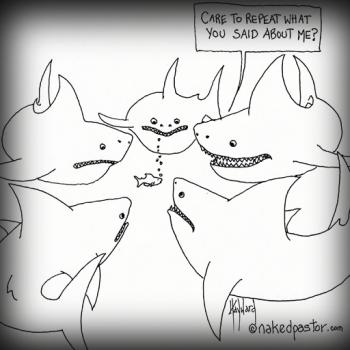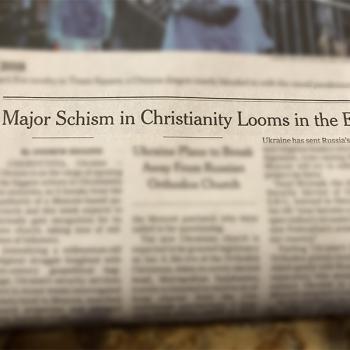The Freeh Report
Because of the release of the Freeh Report, multiple news organizations have offered more information recently on the Jerry Sandusky child sexual abuse scandal at Penn State. Former FBI Director Louis Freeh, hired by Penn State to investigate, published a scathing report about the extent of the cover-up by university officials. Freeh concluded that those officials showed a callous disregard for the vulnerable youth because of their need to protect the football program at all costs.
According to the report (page 21) in November of 2000, this happened: “Janitor observes assault by Sandusky, but does not report the assault for fear that ‘they’ll get rid of all of us.’ Another janitor concluded that the university will close ranks to protect the football program.” Page 65 of the report gives the sad details of the Janitors’ observations.
In the recommendations section, Freeh writes, “One of the most challenging tasks confronting the University community—and possibly the most important step in ensuring that other recommended reforms are effectively sustained, and that public confidence in the University and its leadership is restored—is an open, honest, and thorough examination of the culture that underlies the failure of Penn State’s most powerful leaders to respond appropriately to Sandusky’s crime (p. 128).”
Yes, Freeh is right about that: there can be no sustained change without first a careful examination of the culture in which we exist. Our culture determines our values, and our values, those things which are most important to us, drive our decisions.
Highest Values Exposed
At Penn State, the apparent highest value appears to have been football—anything that supported the football program would be labeled “good,” and anything that distracted from it, would therefore be labeled, “bad.” Now, I doubt this directive was actually written down anyplace. The written directives were bound to be things like quality education for young people, protecting them, etc. But the real center was football. The unwritten culture generally takes precedence over the written code where decisions are concerned.
A number of years ago, working off some of Peter Senge’s fine work on mental models in The Fifth Discipline, I did some consulting work helping groups and organization discern their actual operating metaphor or model. This is not the one written in policy manuals, or the ideals coming from carefully crafted mission or vision statements, but the real, gritty, daily, down and dirty model that drove their decisions, but was rarely talked about.
These discussions were almost always revealing, and were also often fairly painful. Often I would see organizations that claimed to put a high value on cross department teamwork actually rewarding only intra-department achievements. They ended up pushing a deadly kind of competitiveness and information hoarding rather than cooperation and information dissemination.
The Fears of Subordinates
Going back to the Penn State situation, those in highly subordinate roles, and those who were most likely to see Sandusky’s despicable acts, were also those whose personal cultures valued silence—because to do anything else threatened their livelihood and the survival of their families. It’s easy to point the finger at those silent, subordinate ones and say, “Why didn’t you speak out?” But they knew, yes, they knew that football was God, King, and Sovereign, and speaking out against such power could only lead to their destruction.
Universities, which are supposed to be places of free inquiry, are as hard on their heretics and uncomfortable truth-tellers as the church, which is famously known as the only army on earth that shoots its own wounded.
What would it take to create a more open, truth-telling atmosphere? What would it take to relieve the kind of fear that leads to silence in the face of huge injustice? Have things really changed since Jesus spoke out against the prevailing religious authorities, offering a new way of servanthood rather than oppressive power, and ended up on the cross?
Culture and the Episcopacy
I am thinking about this a great deal with Jurisdictional Conferences of The United Methodist Church taking place next week to elect new Bishops from the ranks of Elders who have offered their names for holy consideration. Will these new as well as those returning Bishops be able to create an atmosphere of open questions, challenges and differing opinions without being threatened personally?
Really what I am asking is this: how many in the subordinate ranks of church life stay silent, just as the Penn State Janitors did, for the sake of their families? How many do not say the hard things in order to keep positions? Those are often two highly competing forces—and families are important and don’t appreciate being placed on sacrificial altars for the sake of principles.
What really is the prevailing culture of The United Methodist Church? Are we really about our mission, that of making disciples of Jesus Christ for the transformation of the world? Frankly, that is slow, painstaking, and not terribly rewarding work, although it can be immensely satisfying. Or . . . are we about security, pleasing the higher-ups, building monuments to human talent and creativity? Or is it something totally different? But just like Penn State, until we know, we can’t make the necessary moves toward a more healthy, vital direction.












